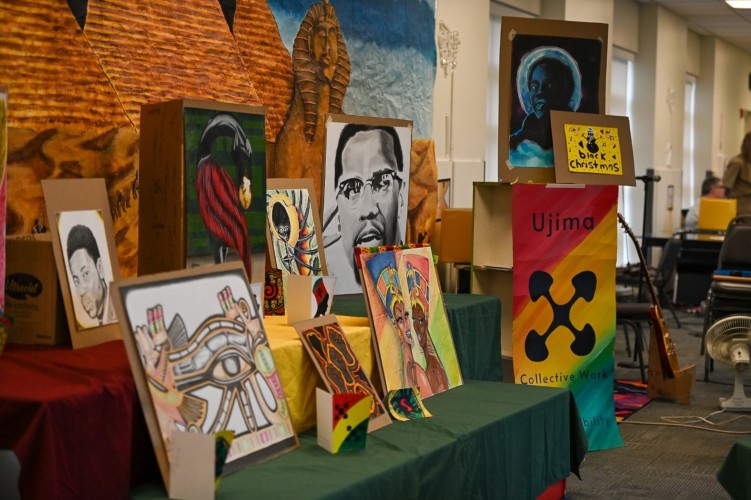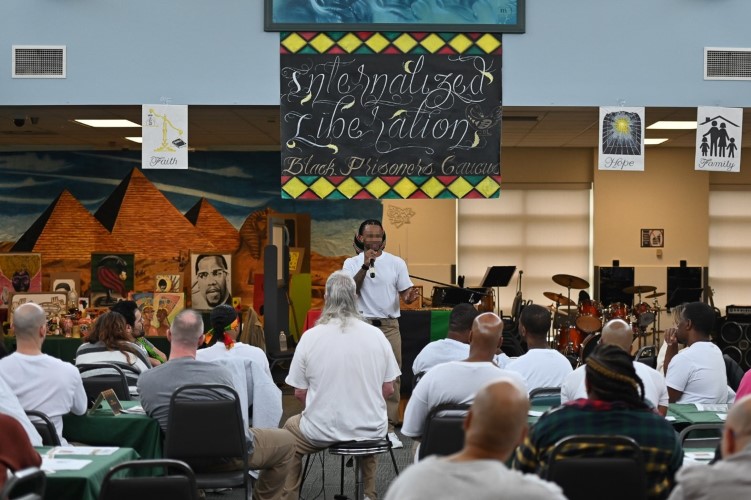
In 2023 the Black Prisoners Caucus at Stafford Creek met to recognize Black History Month. (Brendan Baptiste, Communications Office)
Juneteenth, also known as Emancipation Day or Freedom Day, is a time to celebrate the ending of chattel slavery in the U.S. The story of Juneteenth begins in Texas when Major General Gordon Granger arrived in Galveston on June 19, 1865, with an announcement. As the community listened to the reading of General Order Number 3, the people of Galveston learned for the first time that the Civil War was over. After more than a century of slavery and years of war, it was official. All slaves were now freed men.
Juneteenth holds grave historical and cultural significance that can be deeply painful for many. It's important to celebrate the progress we've made, and the strides society has taken to uplift and emancipate our Black neighbors. We know that systemic oppression doesn't just disappear once a year.
Juneteenth is an important holiday for staff, those in our care and custody and the greater community. Throughout the month, several Department of Corrections (DOC) facilities, are hosting Juneteenth events, which you can expect to read more about soon. DOC headquarters will raise the Juneteenth flag to symbolize our continuous commitment to creating an inclusive and equitable environment for everyone.
Here are some ways you can observe Juneteenth:
- Check out the Washington State Historical Society's Black Washington exhibit, an ongoing initiative to commemorate local Black communities' presence, contributions and evolving impact.
- Support local black-owned businesses. Several organizations have business directories available online.
- Read, watch, and listen to stories about community organizing, engaging in labor and operating business, striving for civil rights, achieving education, pursuing the arts and overcoming adversity and racism.
- Visit museums online or in person, such as the Northwest African American Museum in Seattle and the National Museum of African American History & Culture in Washington, D.C.
- Read and listen to audio of formerly enslaved people describing what it was like to hear the news about freedom on that first Juneteenth in 1865. Discuss your reactions with colleagues.



